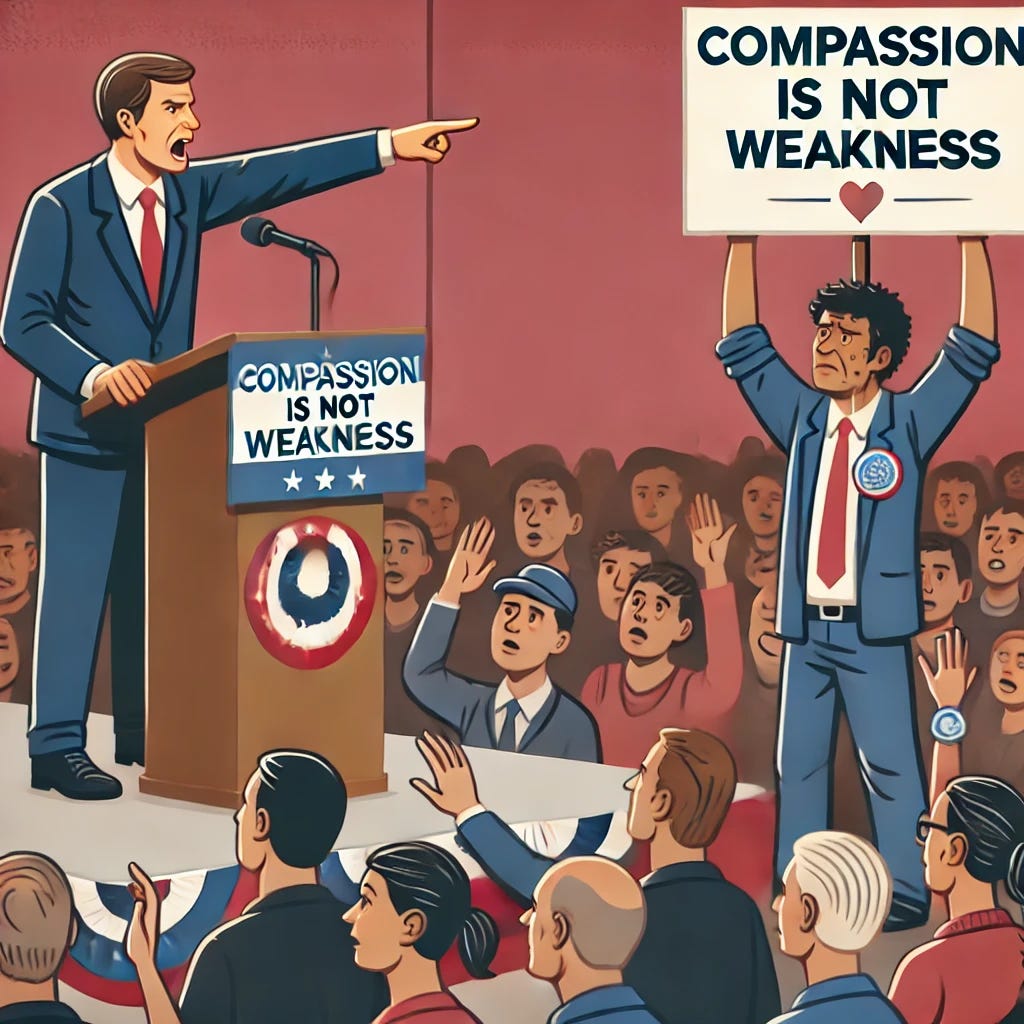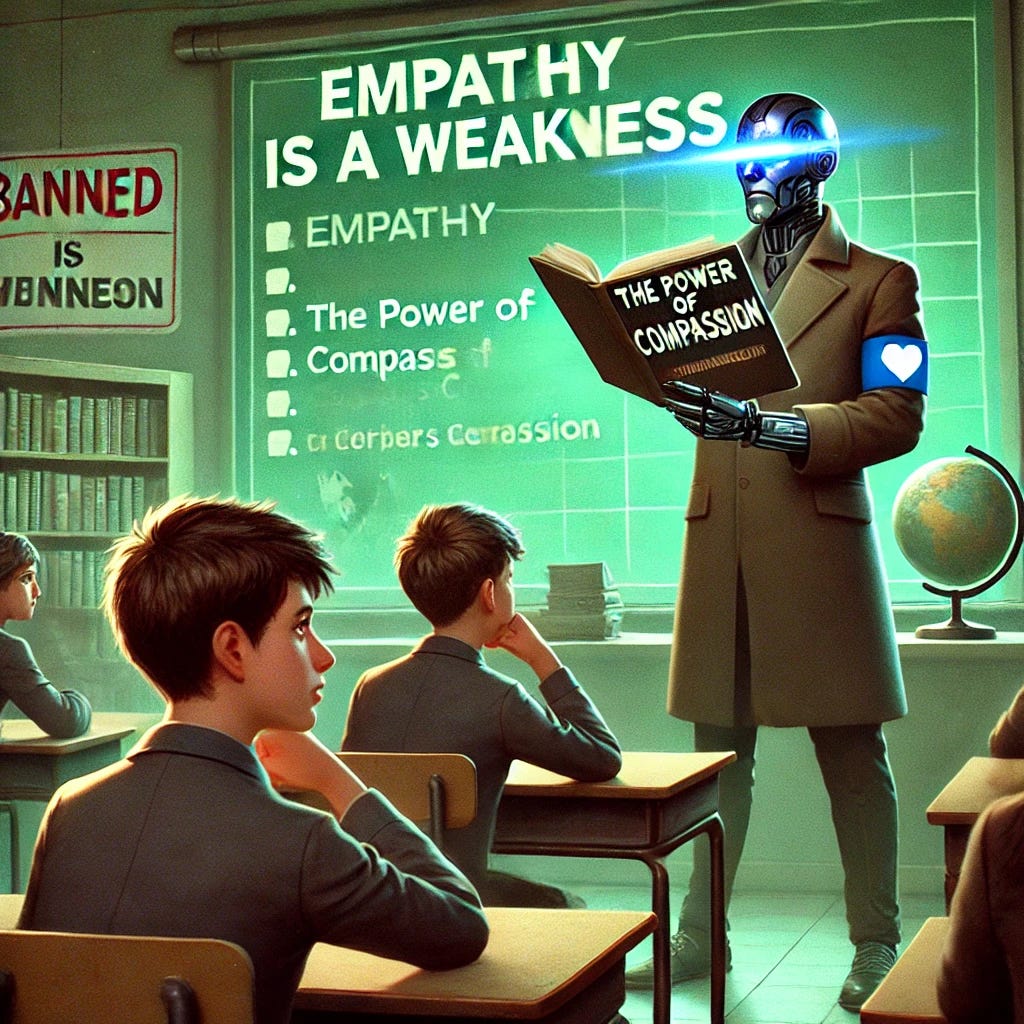In the first part of this series, we explored the idea that empathy, far from being an unquestioned virtue, has been treated at times as a liability—something that weakens moral resolve, hinders divine justice, or interferes with more pressing matters, like conquest, conversion, or control. Now, let’s take a closer look at how this concept played out in history.
Crusades and the Convenient Theology of Bloodshed
If there’s one thing medieval Europe excelled at, it was finding new ways to turn killing into a moral duty. Enter the Crusades, a period where empathy was not only discouraged but framed as a potential spiritual failure.
When Pope Urban II called for the First Crusade in 1095, he made it clear: this wasn’t just a war—it was an act of penance. Kill enough people in God’s name, and all your sins would be wiped clean. A spiritual buy-one-get-one-free deal.
But there was a problem: war can be messy, and humans—pesky creatures that we are—sometimes hesitate before slaughtering thousands. This is where the sin of empathy reared its head. If a knight faltered, if he hesitated before running a sword through a non-Christian civilian, that wasn’t seen as a noble struggle of conscience. No, it was weakness. Doubt. Possibly even demonic influence.
After all, if you start questioning whether your enemies deserve mercy, you might start questioning the whole premise of holy war. And that just wouldn’t do.
So, the Church and its theologians developed a workaround: not everyone was worthy of compassion. Fellow Christians? Sure. The enemy? Absolutely not. To pity a nonbeliever was to betray God’s will. And thus, the Crusades proceeded with divine justification, leading to scenes like the infamous capture of Jerusalem in 1099, where Crusaders slaughtered so many people that, according to one account, the streets literally ran with blood.
The Inquisition: Burning People for Their Own Good
Fast forward a few centuries, and we arrive at the Inquisition, history’s most creative attempt at making torture a moral duty. The logic here was simple: heretics were dangerous, not just to themselves but to society as a whole.
Now, you might think that burning someone at the stake or stretching them on the rack seems a bit harsh, especially for “crimes” as trivial as translating the Bible or questioning Church doctrine. But empathy, again, was the enemy.
If inquisitors stopped to think about the suffering they were inflicting, they might hesitate. They might start feeling sorry for the so-called heretics. And if they started feeling sorry for them, they might question whether these people deserved to be tortured at all. And once you start questioning that, well… the whole system starts to fall apart.
So, instead, they convinced themselves (and their victims) that this was all for the greater good. Better to suffer in this life than burn for eternity, right? What looked like cruelty was actually mercy. A twisted but effective way to neutralize empathy before it got in the way of righteousness.
Colonialism: The Sin of Feeling Bad About Genocide
By the time European powers set sail to “civilize” the world, the idea that too much compassion was spiritually dangerous was already well ingrained. Colonial empires needed a moral justification for the horrors of conquest, slavery, and forced conversion. Fortunately, history had already provided a framework:
Non-Europeans were heathens.
Heathens needed saving.
If they resisted, saving them might require violence.
And just like that, enslavement and mass slaughter became acts of Christian charity. The problem was that some people—missionaries, soldiers, even regular citizens—weren’t entirely comfortable with this. They saw indigenous peoples suffering, saw the cruelty of conquest firsthand, and started to question whether this was really the will of God.
This was dangerous. Not for the Church, not for the empire, but for the system itself. Because if you allow too much empathy, the entire colonial project falls apart.
So, as before, empathy had to be controlled. You could feel compassion for indigenous people, but only in approved ways. You could convert them, educate them, “civilize” them—but if you started questioning whether they had the right to exist on their own terms, you were now the problem.
Some missionaries did object. Some soldiers refused to carry out massacres. But the system adapted: those who sympathized too much with the colonized were branded as naïve, misguided, or even traitorous. If you weren’t careful, your soul might be in danger—not for the harm you inflicted, but for questioning whether harm was justified.
The Modern Legacy: Empathy as a Political Liability
Though we like to think we’ve outgrown the medieval mindset, echoes of the sin of empathy still shape our world. Today, you don’t have to be a Crusader or an inquisitor to hear the argument that too much compassion is a problem.
Military conflicts: If you express concern for civilian casualties, you’re accused of being unpatriotic or weak.
Refugees and immigrants: If you advocate for humane treatment, you’re called naïve—or worse, a traitor.
Criminal justice reform: If you question harsh punishments, you must not care about victims.
Social welfare: If you want to help the poor, you’re encouraging laziness.
In every case, empathy is reframed as a failing—something irrational, something that threatens order, something that must be resisted in the name of justice, security, or economic stability.
Why This Matters
The sin of empathy is not a real sin. But the idea that empathy is dangerous has been a remarkably useful tool throughout history. When people stop seeing their enemies, their prisoners, their heretics, their “undesirables” as fully human, they become much easier to kill, oppress, or ignore.
And yet, history also shows us something else: no matter how many times this idea has been used to justify cruelty, there have always been people who rejected it. People who refused to turn off their empathy, who challenged the moral justifications for violence, who resisted dehumanization even when it was the easier path.
That, perhaps, is the real danger of empathy—not to the individual, but to the systems that rely on its absence. Because when enough people stop believing in the sin of empathy, things start to change. And history has a funny way of proving that, eventually, compassion wins.








